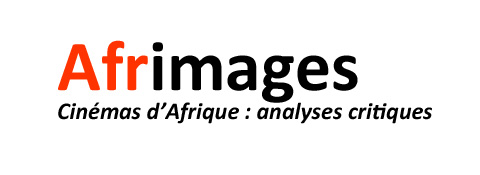(traduction du panel publié sur le site d’Africultures). Organized by the African Cultural Agency (Agence Culturelle Africaine, ACA) and hosted on June 24th for the African cinema Pavilion at the virtual film market for the 2020 Cannes Festival, this “Zoom” meeting moderated by Catherine Ruelle reunited Dr Chiraz Latiri (Minister of Cultural Affairs, Tunisian Republic), Emile Zida (Head of the Cultural Division of the ECOWAS/CEDEAO commission), Aminata Lo Paye (Director of Culture and Tourism at the WAEMU/UEMOA Commission), Olympe Kombile (Expert in charge of Culture at the ECCAS/CEEAC general secretary) and M. Hugues Diaz (Director of cinematography, Senegal Republic). The summary will be hereinafter. The full meeting is available on youtube.

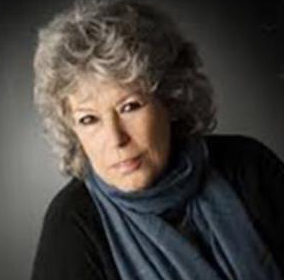 Catherine Ruelle: We are interested in the cultural and cinema recovery plans adopted by African countries in response to the Covid-19 crisis. Some countries, such as Tunisia or Senegal, call for the development of regional and international collaborations to respond in an effective and concerted manner to this crisis by launching stimulus funds for culture. Will tomorrow’s world be different? We can hope so, considering how the young people are showing their support for the African-American community after the murder of George Floyd, but also the debunking of slave trader statues in former colonies. The Sentoo project represents the desire for independence of the continent’s cinemas. We will therefore have to consider prospects for the next world. First, I would like to go back to the impact of the health crisis on cinema. Minister Latiri, what about Tunisia?
Catherine Ruelle: We are interested in the cultural and cinema recovery plans adopted by African countries in response to the Covid-19 crisis. Some countries, such as Tunisia or Senegal, call for the development of regional and international collaborations to respond in an effective and concerted manner to this crisis by launching stimulus funds for culture. Will tomorrow’s world be different? We can hope so, considering how the young people are showing their support for the African-American community after the murder of George Floyd, but also the debunking of slave trader statues in former colonies. The Sentoo project represents the desire for independence of the continent’s cinemas. We will therefore have to consider prospects for the next world. First, I would like to go back to the impact of the health crisis on cinema. Minister Latiri, what about Tunisia?
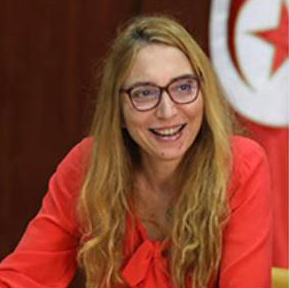 Chiraz Latiri (Minister of Cultural Affairs, Tunisian Republic): The covid-19 crisis broke out only a few days after my arrival at the Tunisian Ministry of Culture, with a total stop to all cultural activities, including the closing of cinemas. Responses had to be quick and most importantly resilient on several levels: social, economic and artistic. I was previously at the head of the National Center of Tunisian Cinema for 2 years and 8 months and was lucky enough to be able to accompany a quality auteur cinema that travelled to all festivals in the world. We are aware of the need to collaborate with the countries of the continent with whom we share a common vision and common problems. We have a tradition of south-south collaborations, and we have tried to position ourselves in this pan-African network, to forge links and meet each other. Cannes has always been an opportunity to develop our network and have dialogues, and the birth of the Sentoo project has confirmed this. We will have to keep pushing despite the damage caused by the crisis.
Chiraz Latiri (Minister of Cultural Affairs, Tunisian Republic): The covid-19 crisis broke out only a few days after my arrival at the Tunisian Ministry of Culture, with a total stop to all cultural activities, including the closing of cinemas. Responses had to be quick and most importantly resilient on several levels: social, economic and artistic. I was previously at the head of the National Center of Tunisian Cinema for 2 years and 8 months and was lucky enough to be able to accompany a quality auteur cinema that travelled to all festivals in the world. We are aware of the need to collaborate with the countries of the continent with whom we share a common vision and common problems. We have a tradition of south-south collaborations, and we have tried to position ourselves in this pan-African network, to forge links and meet each other. Cannes has always been an opportunity to develop our network and have dialogues, and the birth of the Sentoo project has confirmed this. We will have to keep pushing despite the damage caused by the crisis.
Catherine Ruelle: In Senegal as well as in Tunisia, we are at the end of the first phase of the recovery plan. Then comes a phase of relaunch for the film industry. Hugues Diaz, you have fewer cinema theatres even though you are starting to rebuild them. What was the situation at the beginning of this crisis?
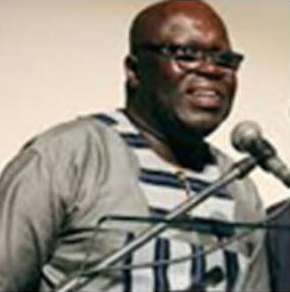 Hugues Diaz (Director of Cinematography, Senegal Republic): For almost a decade, Senegal has been in a phase of recovery for its film industry, which had suffered the consequences of structural adjustment policies. The State more or less disengaged itself in the 80-90s until 2000, and since 2012 we have undertaken major projects with the help of the State. They support private initiatives and are committed, mainly by activating the fund for the promotion of the film industry, which has made it possible, by supporting the private sector, to initiate a restructuring of our film industry. The State creates the legal, economic, socio-professional and regulatory environment, but in order to support the sector, supporting production, distribution, exhibition, training, archiving, etc. is also necessary. Training institutions run by private individuals are being set up locally, but Senegal also supports young people in their studies in film schools in Morocco, Burkina Faso, the United States and France. We have also made a lot of efforts to support production companies, which were dependent on outside contributors in most cases.
Hugues Diaz (Director of Cinematography, Senegal Republic): For almost a decade, Senegal has been in a phase of recovery for its film industry, which had suffered the consequences of structural adjustment policies. The State more or less disengaged itself in the 80-90s until 2000, and since 2012 we have undertaken major projects with the help of the State. They support private initiatives and are committed, mainly by activating the fund for the promotion of the film industry, which has made it possible, by supporting the private sector, to initiate a restructuring of our film industry. The State creates the legal, economic, socio-professional and regulatory environment, but in order to support the sector, supporting production, distribution, exhibition, training, archiving, etc. is also necessary. Training institutions run by private individuals are being set up locally, but Senegal also supports young people in their studies in film schools in Morocco, Burkina Faso, the United States and France. We have also made a lot of efforts to support production companies, which were dependent on outside contributors in most cases.
Catherine Ruelle: Let’s also listen to experts from pan-African and regional institutions. What was the pre-Covid state of play, and then let’s talk about what you plan to do post-Covid.
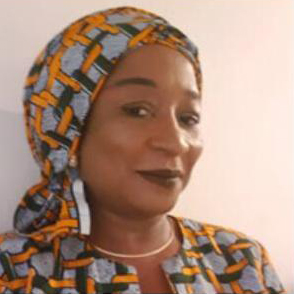 Aminata Lo Paye (Director of Culture and Tourism at the WAEMU Commission): The West African Economic and Monetary Union is above all an area of economic integration and it does not affect cinema directly. But we have understood that cultural sectors contribute to the economic growth to a great extent. We take action on a principle of subsidiarity, where States can no longer intervene to develop an attractive regional market for cultural goods and services, and at the same time improve the visibility of cultural expressions. Cinema and the audiovisual sector remain at the heart of our actions, since the first program within the WAEMU space concerned the production, circulation and conservation of images. However, our main goal is to act on regulations in order to bring about the emergence of a market for cultural goods and services. We have therefore just adopted three directives that try to organize the image sector.
Aminata Lo Paye (Director of Culture and Tourism at the WAEMU Commission): The West African Economic and Monetary Union is above all an area of economic integration and it does not affect cinema directly. But we have understood that cultural sectors contribute to the economic growth to a great extent. We take action on a principle of subsidiarity, where States can no longer intervene to develop an attractive regional market for cultural goods and services, and at the same time improve the visibility of cultural expressions. Cinema and the audiovisual sector remain at the heart of our actions, since the first program within the WAEMU space concerned the production, circulation and conservation of images. However, our main goal is to act on regulations in order to bring about the emergence of a market for cultural goods and services. We have therefore just adopted three directives that try to organize the image sector.
Catherine Ruelle: The Economic Community of Central African States (ECCAS) is a regional organization in Central Africa, and we have Olympe Kombile with us.
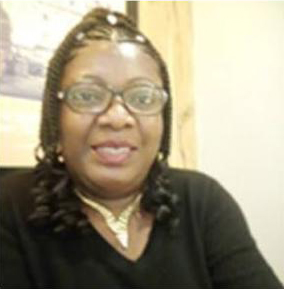 Olympe Kombile (Expert in charge of Culture at the ECCAS General Secretariat): The Community was created in 1983, the treaty was implemented in 1984 in Libreville. It was only in 2013 that the community adopted a strategy for the promotion and development of culture in Central Africa. Some states do not have a cultural policy yet, which makes it difficult to implement this strategy. Everything starts from there. Our strategy relies heavily on cultural and creative industries, cinema is one of them, and it is a sector that is growing rapidly. We need the most advanced States to help the others. In Cameroon we have Écrans Noirs, which has already come a long way and which we encourage. We believe that there’s no point in creating new festivals: we rely on what already exists.
Olympe Kombile (Expert in charge of Culture at the ECCAS General Secretariat): The Community was created in 1983, the treaty was implemented in 1984 in Libreville. It was only in 2013 that the community adopted a strategy for the promotion and development of culture in Central Africa. Some states do not have a cultural policy yet, which makes it difficult to implement this strategy. Everything starts from there. Our strategy relies heavily on cultural and creative industries, cinema is one of them, and it is a sector that is growing rapidly. We need the most advanced States to help the others. In Cameroon we have Écrans Noirs, which has already come a long way and which we encourage. We believe that there’s no point in creating new festivals: we rely on what already exists.
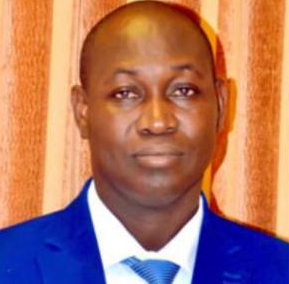 Émile Zida (Head of the Cultural Division of the ECOWAS Commission): The Community has a Roadmap: the cultural agreement framework. This tool has just been replaced by a cultural policy that has just been approved by the Council of Ministers in December 2019. This cultural policy has a much more globalizing goal: to contribute to a sustainable socio-economic development and regional integration through the promotion of cultural diversity and cultural industries. Cinema is an essential component of this, with the FESPACO and the Nollywood phenomenon in Nigeria. The ECOWAS supports States in the promotion of their events and often tries to co-produce when a theme interests them.
Émile Zida (Head of the Cultural Division of the ECOWAS Commission): The Community has a Roadmap: the cultural agreement framework. This tool has just been replaced by a cultural policy that has just been approved by the Council of Ministers in December 2019. This cultural policy has a much more globalizing goal: to contribute to a sustainable socio-economic development and regional integration through the promotion of cultural diversity and cultural industries. Cinema is an essential component of this, with the FESPACO and the Nollywood phenomenon in Nigeria. The ECOWAS supports States in the promotion of their events and often tries to co-produce when a theme interests them.
Catherine Ruelle: Can we send you applications for aids directly or do we have to go through the States?
Émile Zida: The support is at the level of the States but can also be private initiatives. This is usually done in the form of requests, which filmmakers send to the ECOWAS. In the example of the FESPACO, the ECOWAS supports private initiatives through prizes. For example, we have the integration prize, which is given to West African filmmakers who have produced in West Africa and deal with integration. We also have the prize for the best female filmmaker in West Africa. Through the new policy that has just been adopted, the establishment of financial mechanisms is planned to improve the structure of the various aids that the ECOWAS grants to the cultural sectors in a comprehensive manner.
Chiraz Latiri: On a Tunisian level, the Cultural Revival Fund was a sectoral response to the covid-19 crisis. It was therefore taken very quickly with my colleague, the Minister of Finance. It is a fund based on contributions from the private sector, the main sponsors of festivals, with a very transparent governance. The recovery plan first included a rescue phase aimed at maintaining the existence of contributors, receivers, artists, technicians, financial sponsors and economic players in order to preserve the cultural sector. We undertook online submissions with an adapted platform. We took into account the sector’s membership but also the precarity of family situations (number of children, etc.) and responded to 66% of the applications submitted. The Ministry used a circumstantial social assistance mechanism to support struggling artists, managed by the copyright organization and operating all year long, it is not specific to the covid-19 crisis. The recovery fund has made it possible to support around 1,600 families and individuals, and with the copyright organization mechanism, around 3,000 families have been helped. The whole mechanism has been transparent, with sectoral commissions: cinema, music, theatre, fine arts, publishing. The reasons for such precarity were important to analyze: in the cultural sector, the contributors are more in the informal sector, without membership in social security or in the copyright organization, or even the artists’ insurance. We are therefore working towards reforming this system, which is not up to the level of artists or creators. In order to encourage people to move to the formal sector, we have created a third branch of the aid that is conditional to the artists’ membership in their insurance and in the copyright organization.
Catherine Ruelle: So that is a real structuring work
Chiraz Latiri: Yes, we are trying to do build a structure while finding short-term solutions at the same time.
Catherine Ruelle: What was the amount made available for this action?
Chiraz Latiri: We are still in the process of raising funds, as we are starting the second phase which is the recovery phase. For the moment we have managed to collect 1,500,000 dinars, so around 500,000 € and we have given the equivalent of 200 € per month over three month as a direct aid for individuals. For legal entities, we have acted on the basis of subsidies on the fixed charges of cultural operators, in March, April and May. We had to help them avoid closing and preserve jobs. In Tunisia, those are mostly small structures, except for a few cultural spaces: it was urgent to protect this fragile economy and strengthen it. This crisis was also an opportunity to highlight the fact that the cultural sector must be a priority, especially the film sector. We need to make progress on the status of the artist, the filmmaker and their rights, including the right to decent social security. The ministry is responsible for both the regulation and organization of the sector. The recovery fund was also a message to all of our partners: we need to build a cultural solidarity, where all the issues common to the African continent can be addressed.
Hugues Diaz: Senegal has adopted a strategy very similar to that of Tunisia. As of March, during the second week of the pandemic, we launched a large study with 50 companies, which provided us with data on the people affected and the loss of income. The head of State and his government worked very quickly on a recovery program for all of the country’s socio-economic sectors. In the cultural field, during the Council of Ministers that took place on 3 June, the President of the Republic released a budget of 3 billion CFAF, approximately 4 574 000 €, dedicated to the specific support of the cultural sector as a whole. The arbitration dedicated 500 million CFAF, or 762 196 €, to cinema and to creative audiovisuals: series, for example, which have a very flourishing market.
Catherine Ruelle: When Minister Latiri talks about restructuring the status of filmmakers, was that also an element that you reflected on during this crisis?
Hugues Diaz: Yes, we have the same problem. Our texts specify the quality of all the professions in Senegalese cinema through the professional card. The public register is also a mechanism that allows us to control all contractual acts in production and exploitation, but all of this still needs to be refined. The crisis has reinforced the reflection on the fragility of our texts and our regulatory and economic environment. Professionals have become aware of the need to get more organized in order to create strong organizations and proposals for mutual aid and solidarity. The 500 million CFAF aid has been distributed. Professionals will receive their money in a few days, with a distribution based on equity, because we could not put everyone on an equal footing. We have to help 357 occasional workers: technicians, film directors, scriptwriters, and a few actors.
Catherine Ruelle: you sent us a memorandum that was written in collaboration with all Senegalese film professionals. Was there a junction between official institutions, such as the one you manage, and film professionals in Senegal?
Hugues Diaz: Yes, it was a very inclusive approach. We couldn’t do anything without them because they were the first to be involved. We had to work together on the eligibility conditions for the granting of this aid and to distribute it fairly. There was no friction in what was decided. We welcomed this outpouring of generosity. This reorganization must be continued in order to manage future crises. With the professionals and the directors of cinematography, we have launched a concept: Senegalese cinema at home, through television. Senegalese television has broadcast Senegalese films, and directors who were not known have become famous! And have then received their legal copyrights.
Chiraz Latiri: During the first phase, we tried to integrate all the solutions, trying to guarantee a certain sustainability. We signed a framework agreement with national television for the producers. We took a TV air time every evening from 9pm to midnight, where we broadcast films and pay the broadcasting rights to the CNC. Our goal is to have our own cultural television, starting in 2021. It’s an element that is part of this rescue phase to support producers with the production rights for the selected films, but it is also aimed to build this Tunisian cultural project in a cooperation logic.
Catherine Ruelle: The Carthage Film Days (CFFD) will focus this year on heritage, will that allow us to see all the prize-winning films?
Chiraz Latiri: Absolutely, and even those that didn’t win an award, but which marked an edition. The second phase of the cultural recovery fund is designed to rebuild dialogue and trust between the ministry and the cultural players. Its program is called “Bassamet” (Arabic for « footprint »), in line with the ministry’s new vision, which is based on decentralization. The revival will therefore take place across the regions in collaboration with all cultural spaces, civil society and associations carrying cultural projects, but also artists and creators. Cinema and filmmakers in the regions will of course be involved, as will young project leaders who would like to integrate an artistic writing residency, or work on their short or feature film project. We will start with pilot programs, with the ministry’s development of administration and regional proficiency, around July 15th, when institutions linked to the ministry such as the CNC will launch calls for projects to collect ideas. It is therefore a vision-driven public commission. One of the achievements of independent Tunisia is this network of cultural institutions throughout Tunisia: more than 470 national libraries, more than 260 cultural centers, 24 drama centers, 24 music conservatories, traveling libraries. We would like these spaces to become incubators for cultural projects, in collaboration with donors. Thus a platform for both creation and economics. The State cannot subsidize all cultural projects: we need intelligent cooperation based on consultation, and a strong conviction of the positive impact. We have proved this with the Sentoo framework. What is at stake is the sharing and integration of resources and ideas. This may seem very ambitious, but it starts with small projects, in a logic of decentralization. The Ministry must play its part in working on important legislative reforms: we can no longer be satisfied with a legislative framework that is becoming virtually obsolete.
Aminata Lo Paye: We are following the initiatives of our countries very closely. The WAEMU commission adopted its cultural development policy in 2013 and the program in 2014, but since the creation of the commission in 94 they have always worked with the FESPACO. Developing an attractive regional market also means thinking about the structuring but also the productivity of this market. We are working on a mechanism for the promotion of cultural companies and industries, to support the film sector and the creative and cultural industry in general more effectively. The WADB (West African Development Bank) is assessing how much the film industry can integrate into the regional financial market. We are also in the process of implementing private copy levies, which are only applied in Burkina Faso among our eight member states. We have seen that, in Germany, the funds of the author companies accounted for almost 50% of the resources provided to the cultural sector.
Hugues Diaz: The role of the FOPICA is to recover the professional economic activity of the sector. The Senegalese State will grant an additional 1 billion to the FOPICA, which will bring it to 2 billion CFAF. This was agreed last week within the framework of the amending finance law. We will therefore have to produce our films ourselves, shoot them and make them entirely in Senegal. There are companies that are appropriate in that aspect. We are going to develop endogenous projects and, in order to be able to distribute our productions locally, we are going to set up a distribution chain so that Senegalese producers can find an outlet for their films, in other words, a way to gain profit from their cinema. The other aspect is a local approach, a “territorialization” of cinematographic activities throughout Senegal because we have noticed that the capital of Senegal, Dakar, is polarized and has taken 82% of the activities of cinema production and distribution. We are also anticipating a program to safeguard, restore and digitize film and audiovisual archives, with Italian partners who have been working with us since November to carry out this safeguarding work. The WAEMU has set up financial mechanisms. We would also like the WAEMU to take action on taxation and on cultural companies as a whole. We need to review the VAT applied to the cultural industries in our countries. In December-January I would like us to make an assessment on the situation to see what has been done and whether it has been useful or not
Chiraz Latiri: We need to think together in a concrete and concerted way about the post-covid period and above all about both bilateral and multilateral cooperation in order to think about the structural changes that are needed, to ensure that the creative cultural industries are firmly rooted in our fragile economies even deeper. Tunisia has already started and initiated the setting up of an investment fund, which will be launched in October or November 2020.
Debate with the « room »
Fatou Kiné Sène (Head of the African Federation of Film Critics – FACC): Is the billion provided for the relaunch of the FOPICA the one the president had promised in 2018, or is it another billion, which would make a total of 3 billion? I also have a question for Ms Paye about the envelope intended for the States, is it already effective? WAEMU prizes at the FESPACO are good, but the support of these films is missing. Can a critical and informative work such as our website africine.org be accompanied on the continent?
Hugues Diaz: Last week’s law has nothing to do with Covid: it is a promised fund that comes on top of the initial billion and these 2 billion will be intended for the 2020 management.
Aminata Lo Paye: I was talking about direct support from the WAEMU commission to the member States, managed by the states according to their economic policies, to decide on their emergencies. On the other hand, the circulation of images, and therefore films, is one of the aspects of our program. We have discussed with the traveling cinema to work on the circulation of our films, but this is a project that has remained unchanged for now.
William Baye (Senegalese filmmaker): I agree with Hugues Diaz that the cultural space should respect taxation, but I think that tomorrow’s world will be based on copyrights. In Africa, no producer receives money from any television, no film director receives any copyright. That is why, in Senegal, we have set up a commission for private copying, but we are unable to come to an agreement with the Ministry of Culture. That is why I would like to ask for the support of the directors of cinematography, and the support of the WAEMU which talks about private copy, to impose private copy on our countries. Private copy is the future. Copyrights are collected and paid to artists.
Aminata Lo Paye: We are currently working on the implementation of the standard-setting instrument, and considering the difficulty that our States have in implementing them separately, we are thinking of making a regulation that will be direct and applied in all of our States for the implementation of private copy remuneration. In September 2018, we had offered to harmonize the measures relating to copyright and to related rights in the image sector, which has enabled some countries to resolve their issues regarding the payment of authors’ remuneration. Some countries have already implemented it. We are working hand in hand with author companies.
Olympe Kombile: This is a crucial issue, but we are not out of the woods yet. Many countries do not have copyright legislations yet. We therefore want to adopt a regional text. In the Democratic Republic of Congo, there are even mechanisms implemented that work with phone operators to give free concerts. This strengthens the artists and encourages them because there is a form of competition between the different phone operators to pay for free concerts.
Emile Zida: The regional reflection that the WAEMU has mentioned is for West Africa; on the level of the SADC we are also thinking about it. There are only two countries that apply it: Burkina Faso and Ghana. There has been consultation between the WAEMU and the SADC, and the SADC is going to carry out the same study for the other countries, like the study that the WAEMU is carrying out on its countries. Harmonization could then be achieved for the 15 Member States of the West African region. With the Covid-19 crisis, it is important to speed up the implementation of the actions we have mentioned regarding cultural policies, systems of financial mechanisms for capacity building in support of production, entrepreneurship and promotion. At this level, we believe it is important to step up a regional cooperation, and we have a common technical sector with the WAEMU. The SADC has just adopted the policy that will provide for the financial mechanism. Apart from private copy levies, we also need to think about digital technology as an economic logic, first to change the traditional ways of accessing culture in general and particularly cinema, but also to rethink consumption habits.
Hugues Diaz: For private copying, negotiations have been conducted with contributors: the Customs Administration, the Ministry of Culture, and the Ministry of the Economy and Finance. Things are very advanced, and the technical questions concern the mode of taxation and the equipment that will be taxed, the platforms that will record sound or audiovisual material. We must agree on the areas of taxation, and this will be done along with the commercial sector. Attention must be paid to ensure that this is achieved quickly. I agree with countries such as the Ivory Coast, which recently took the decision to tax the GAFA companies: Google, Apple, Facebook and Amazon. I believe that this can also help artistic production, not only audiovisual but also cultural and film production.
Adja Soro (director of a children’s books publishing company in Ivory Coast, and producer of animated films): We aren’t listened to. Decisions are made above us, and we don’t have access to information about the existing funds.
Hugues Diaz: The State is there for the community, but the actors are dispersed throughout the country. Formal frameworks for discussion and sharing are missing. In Nigeria, for example, producers go to their producer chambers. The funds created in Ivory Coast or Senegal are intended for young creation: these young artists should also come to information. On the Senegalese film portal, you have a lot of information, as well as all the festivals that call for films. Young people are more comfortable with social networks, so we try to adapt.
Émile Zida: The information deficit concerns all creators in a global way. We need to structure all sectors, profession by profession. The various regional policies take this into account.
Myriam Arab: Information exists, but we need to train people to know where to find it. Festivals and workshops should create specific tools for our professionals.
Alex Moussa Sawadogo (Ouaga Film Lab): Adja Soro benefits from the Young Francophone Creation Fund (Fonds Jeune création Francophone) that we manage along with the CNC and other Francophone partners, and she developed her project in one of the major European laboratories. I think that if we want to have films displayed in major festivals such as the FESPACO, Cannes and the CGC, we need to take action now in order to create defined measures that will support anyone who wants to make films. The health situation requires everyone to take action.
Aminata Lo Paye: We aren’t a funding agency, but we create the environment that will enable the fundings to reach our actors. I also see that not enough information is being disclosed. The WAEMU directive has enabled the Ivory Coast to catch up on funds that they were owed under copyrights and related rights, which had not been paid until now. The launching of the mechanism for the promotion and support of cultural business is planned to launch in 2021. They will not be free subsidies, but it will create the atmosphere for our creators to find the necessary funds for their artistic productions.
Emile Zida: On the institutional level, we are currently looking at how to create and improve the access to information for all contributors in a global way.
Olympe Kombile: Artists often say that they do not have access to certain funds and benefits. There is a lot of substantive work to be done. A database is needed. When artists and cultural actors are called to register, they don’t come, and then when they learn that there is a call, they come out of the blue because they want to take advantage of that call. I now ask all cultural actors to go to information, and to make themselves known.
Catherine Ruelle: The Covid pandemic is an excellent opportunity to question all shortcomings. We are counting on you! Thank you all!
Special thanks to Amal El Moutaouakil for her help with the transcription and translation into English (French version on the Africultures website)
